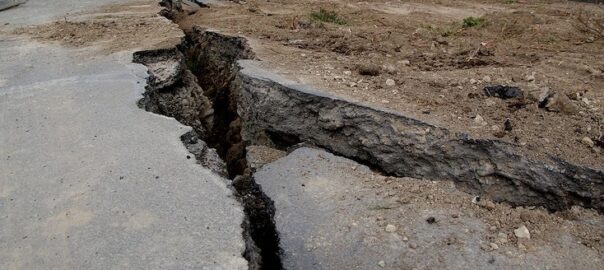The recent earthquake in Turkey has created a wave of international sympathy, with people sending help from countries all over the world. Greece, a country whose relations with Turkey have been characterized by longstanding (and recently escalating) tension, was one of the first to send help and this may better the situation between the two countries[1]. At the same time inside Turkey, everyday people but also celebrities are showing solidarity[2].
Natural disasters offer opportunities for philanthropic activity and can be revealing regarding the levels of resilience in societies. Yet, they also create opportunity of crime. Already news from Turkey is reporting incidents of fraud, looting, ransacking, clashes between people, even gunfire.[3] All these are making even more difficult the work of rescuers during critical times. Turkish authorities in order to manage the natural disaster have declared State of Emergency and they are also trying to counter crime carrying out arrests.[4] Because trying to manage an emergency and respond adequately to a natural disaster is more than organizing rescue missions and providing relief. It is also about making sure the chaos that inevitably has been created will not lead to further suffering, this time due to criminal victimization. It is about seeing the problem from a security perspective too.
It can be argued that research regarding crime during a natural disaster period has largely shown that crime decreases,[5] or stays about the same.[6] Such research does not overlook of course the problem of crime, but recognizes it as an occasional, isolated phenomenon. On the other hand, also dissenting research exists, as well as international experience recorded that seems to challenge the afore mentioned views[7].
Disaster means crisis, crisis can be a matter of life or death and we know that in such situations sacrifice, altruism and self-denial can be observed as ways of behavior, but at the same time what comes into the picture is the survival instinct. If there are emergency situations, the property of others may be taken by those in immediate need. If there is scarcity of goods people will fight for the chance to be the ones to get them and stay alive. Unfortunately, this is the sad but inevitable reality of the battle for survival. However, during disasters there can be behavior towards others that is not about actions needed to stay alive during an emergency. For example, criminals take advantage of the vulnerability created in most fragile times in order to gain profit from taking advantage of their fellow- beings. Additionally, elevated risk exists for sexual abuse of women and children, as well as of people belonging to vulnerable categories (the homeless, those with mental issues, etc.)[8]. Last but not least, the solidarity shown by society can be also a reason for crime, this time of more institutional dimensions. As relief money comes into an area that has been hit by disaster, the more it can be possible for corruption to be a problem, with local official getting rich through transactions lacking transparency.[9] Such corruption, coupled with the grievances of citizens in need, having lost everything, could lead also to social unrest incidents, riots against the government. It has been argued that social and economic inequalities, as well as systemic injustices are among the factors influencing the possibility of disasters triggering protests[10] .
Turkey is experiencing a biblical catastrophe and is called to address it as soon as possible with a disaster management plan. It should study the experience of other countries inflicted by natural disasters of devastating magnitude and take lessons on what needs to be done and what needs to be avoided. The political scene needs also to have a look at how this earthquake has revealed systemic deficiencies in Turkey[11] that put its citizens in danger. What happened is not petty politics material, but it is a political issue that could also affect the coming elections.
[1] https://www.voanews.com/a/greece-turkey-urge-better-relations-after-quake-/6959424.html
[2] https://variety.com/2023/film/global/mert-firat-turkey-earthquake-relief-donations-1235517832/ , https://www.turkishminute.com/2023/02/10/turkish-singer-charity-ahbap-win-trust-of-millions-with-effective-post-quake-relief/
[3] Indicatively, read: https://www.voanews.com/a/looting-hygiene-worries-add-to-burden-in-turkey-/6958969.html, https://www.bbc.com/news/world-europe-64599553, https://www.bleepingcomputer.com/news/security/paypal-and-twitter-abused-in-turkey-relief-donation-scams/
[4] https://www.ndtv.com/world-news/48-arrested-for-looting-defrauding-earthquake-survivors-in-turkey-3774911
[5] https://www.ojp.gov/ncjrs/virtual-library/abstracts/crime-during-disaster
[6] Berrebi, C., Karlinsky, A. & Yonah, H. Individual and community behavioral responses to natural disasters. Nat Hazards 105, 1541–1569 (2021). https://doi.org/10.1007/s11069-020-04365-2
[7] https://www.justice.gov/usao-ndfl/pr/national-center-disaster-fraud-warns-fraud-after-hurricane-ian
[8] https://www.nsvrc.org/blogs/five-reasons-sexual-violence-increases-disasters, https://www.legalmomentum.org/blog/preventing-sexual-violence-wake-natural-disasters
[9] Quang Nguyen (2017) Do Natural Disasters Open a Window of Opportunity for Corruption?, The Journal of Development Studies, 53:1, 156-172, DOI: 10.1080/00220388.2016.118772, Alexander, D. Corruption and the Governance of Disaster Risk. Oxford Research Encyclopedia of Natural Hazard Science. Retrieved 12 Feb. 2023, from https://oxfordre.com/naturalhazardscience/view/10.1093/acrefore/9780199389407.001.0001/acrefore-9780199389407-e-253.
[10] https://www.frontiersin.org/articles/10.3389/fpos.2022.836420/full
[11] https://foreignpolicy.com/2023/02/13/turkey-syria-earthquake-erdogan-elections-negligence/

